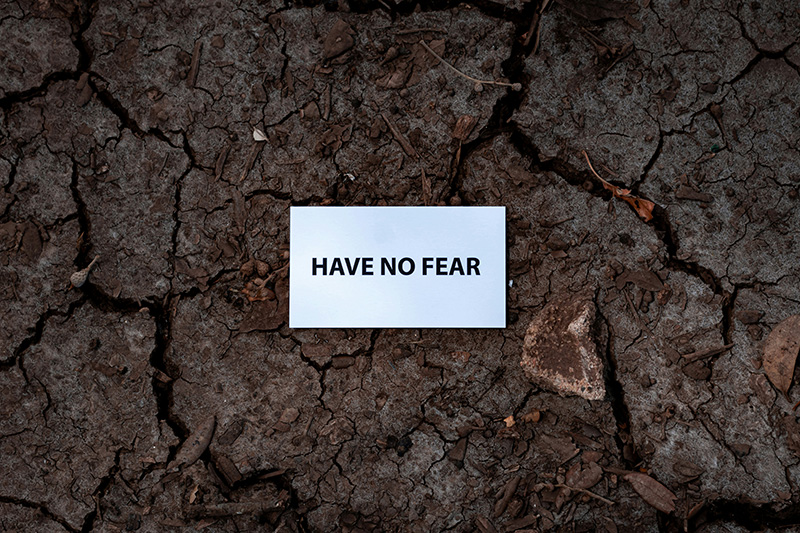Last Updated on April 10, 2023

Before we go about answering this question, let's take a closer look at that beast of a word — Discipline. What does it really mean?
The sheer mention has probably got the hairs on the nape of your neck standing on end. Webster's dictionary tells us why. The entry on discipline starts off like this: “Control gained by enforcing obedience or order.” Lovely. The second possible meaning? “Punishment.”
Let's close Webster's, shall we?
Of course, there are gentler forms and meanings of discipline. It could simply mean a repeated behavior. Say, showing up to your desk every morning and sitting there, ready to write. Easy, no? . . . Well, not for everyone.
For those of you who have a hard time getting yourself to your desk every day, or even getting yourself to your desk ever... is there any hope?
I say yes. And that hope comes in the form of something different from — but related to — discipline.
Discipline's Siblings: A Family of Behaviors
I've become acquainted over the years with a family of behaviors related to Discipline. Discipline's siblings — those kinder, more approachable relatives — are terrific intermediaries in helping people establish a solid writing practice.
The first sibling is Accountability. Reliable and steadfast, she is the gentler younger sister of Discipline. With Accountability on your team, you don't have to go it alone; you'll enlist another human being to help you out — a trustworthy friend, partner, or professional coach. We humans are much more likely to follow through on a commitment if we make that commitment to someone outside ourselves. We want to show her or him we can do it.
Reward is another sibling. You can call on her any time you're needing an extra push to get your writing accomplished. Decide on a particular reward before you sit down to write (or before a whole week of writing) and follow through by giving yourself that reward when you've reached your goal. The reward could be as small as 15 minutes of Instagram or an ice-cream cone or as grand as a vacation in Costa Rica. (And just because you're calling on Reward doesn't mean you have to invite along her ornery twin, Punishment.)
The last member of the family is Habit — the eldest of the siblings. Habit is so kickback that he doesn't even show up until Discipline, Accountability, and Reward have already gotten things going. Habit saunters in and ensconces himself on the couch of your life, without you really noticing he's there. Good luck getting him to budge.
Habit Is More Reliable Than Discipline
Interesting that the most reliable sibling of the bunch is the one that requires the least effort on your part. Of course, getting Habit to show up initially can be a challenge. You may need to rely on his siblings to get things started. But once he has arrived, he will be the last to leave.
In other words, you only need Discipline (or Discipline's gentler sister Accountability) for a little while, until Habit takes over and makes the whole game easier. And that's what we're after. We want to get you to the place where your writing Habit is so solid, so ensconced in your life, that it just feels wrong to not write.
Of course, that doesn't mean you won't ever fall out of your writing Habit. It can happen, and if it does, it's time to call on Accountability again.
So instead of relying solely on Discipline, which is not always the best fit for many a sensitive writer, we can bring in a whole family of behaviors to keep us on track — Accountability, Habit, Reward, and maybe a bit of Discipline. Taken together, they're really quite a crew.
Brush, Floss, Write
What do brushing and flossing have to do with writing? Nothing.
Except one thing: They're all behaviors. And all behaviors — if repeated regularly and often — are susceptible to becoming Habit.
Many years ago, before I had firmly joined the flossing camp, my dental hygienist gave me an assignment. She said, “Floss for 21 days straight. After that, you can skip it once in a while.”
I didn't much like flossing, and I was usually too tired to do it before bed, but I decided to make good on the assignment.
And you know what happened? After the 21 days, I tried to skip a night of flossing... and it just felt wrong. I couldn't not do it.
In just three weeks I had developed a solid Habit, and my hygienist had gotten me there with Accountability — since I would be showing up in her chair again in a few months. (And yes, I am still firmly in the flossing camp all these years later.)
Some Not-So-Disciplinary Rules
I've got a couple of rules that I like to suggest to clients. These are not harsh rules; to the contrary. They're more like guidelines, and they'll help you stay on track with establishing a writing habit.
- No beating yourself up.
- Do better the next day.
You've probably beat yourself up at least once in your life (if not a lot more than that). Most of us have. You've also probably noticed that it tends to backfire. It makes you fall deeper into the hole of inaction rather than motivating you forward. It's not about some lofty ideal; it just doesn't work.
And, doing better the next day? Here's the thing, you don't even have to wait until the next day. Any moment is a good moment to begin again. Start over... now. Or now. No one's watching, except maybe your coach, who will cheer you on. Even if you just plain... forgot?... to write for a week or a month or a year, why not start again... now?
My Own Writing Habit
What about me, a professional editor and writer? How's my writing habit?
When I have a paid assignment and a deadline, I stay on track and get it done. Such is the beauty of deadlines. (Accountability.) But with my own writing — that novel that seems to be taking years to finish? Well, I'm human. I'm as uneven as the next guy. At the moment, my daily writing habit is solid, but I do go through my ups and downs. I give in more often than I like to the lure of social media before I write. I sometimes “leak a little creative energy” into cyberspace before I can bottle it and put it on the page. On those days when I give in to distraction before writing, my head is perhaps not as clear, my ideas not as fresh, and my patience with the writing process a bit thinner. So, what do I do? I make a commitment to do better the next day and acknowledge that it's tricky to be human at the center of the information explosion that is our modern world.
What keeps me coming back to my writing habit?
- I love the writer's high — that is, the high that comes from having written. And I'm generally a happier person overall when I'm engaging in a regular creative practice.
- I revisit my old friend Accountability. I engage a coach (yes, even a writing coach needs a writing coach for personal projects on occasion) and I lean on her until my Habit crystalizes again.
- I don't beat myself up but instead agree to do better the next day.
And this is how — day by day, word by word, paragraph by paragraph — a story gets formed, a book gets written.
For more articles on getting your writing done, see Quieting Your Inner Critic, How to Get Unstuck When Writing, and No Time to Write Your Book? Try 10 Minutes a Day.
- Should You Let AI Write Your Book for You? - September 7, 2023
- Show, Don't Tell: Writing 101 for Fiction and Memoir - July 19, 2019
- Do You Need Discipline to Be a Writer? - September 14, 2018



